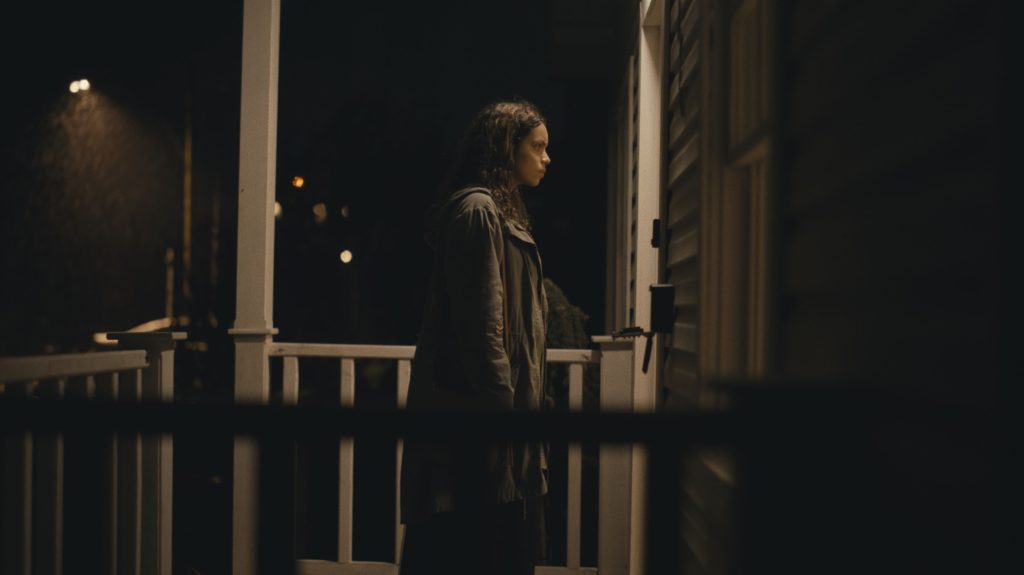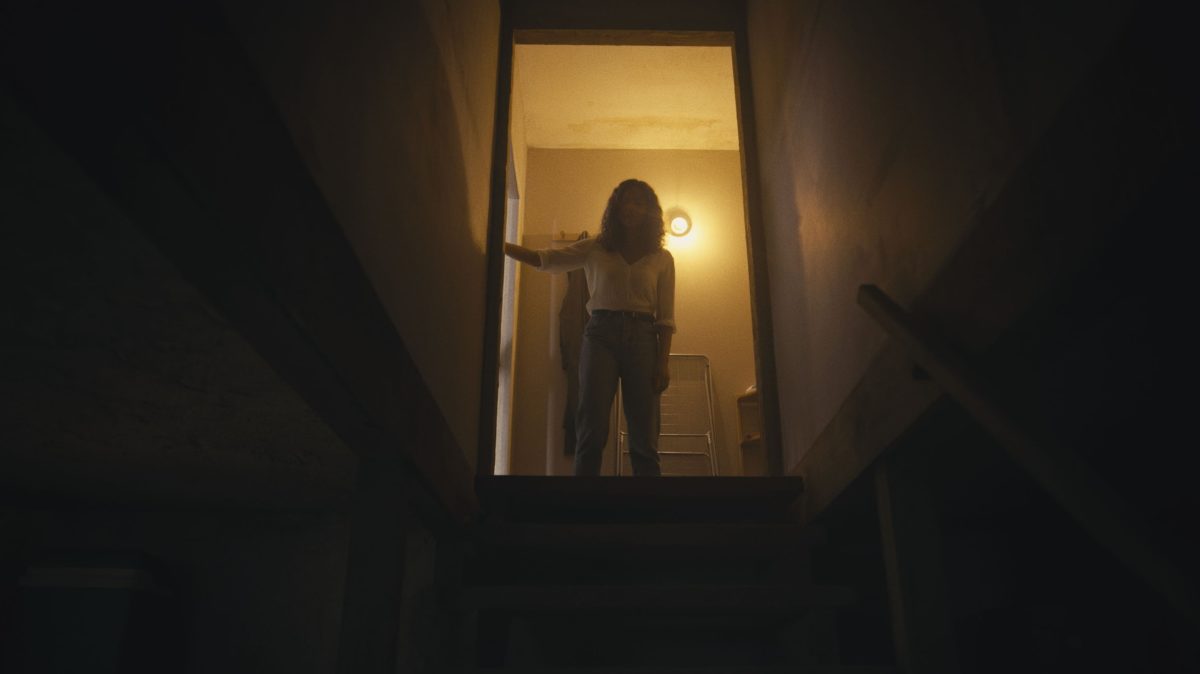"What, do I look like some kind of monster?"
Don’t make the same mistake as me. If you want to watch this movie, go into it completely blind. After all the buzz about the film’s use of misdirection, I read a couple of plot synopses. Thus, I missed the thrill of being twisted around, and that probably tainted my opinion. I’m going to assume if you’re reading the rest of this review that you have either seen the movie or don’t mind spoilers.
With that as a prelude, I didn’t really have all that much fun watching Barbarian. It is pretty damn scary for stretches — anything set in the basement and lit by a flashlight made me want to whimper in a corner until the movie returned to daylight. But it is not an especially fun scary watch, nor even that clever, though it acts like it is. Exactly one moment made me laugh out loud — AJ (Justin Long) reacting to his discovery of a creepy secret basement in his property by wondering if it increases his home value. Compare that to the fifteen-or-so times I laughed during Bodies Bodies Bodies (which, on the other hand, is a lot less scary), another movie that positions itself as a satiric horror film, and it seems underwhelming for its black comedy.

Mostly I spent the time watching Barbarian in a state of discomfort, the herky-jerk storytelling shifts leaving me unmoored rather than immersed. Every time it halts its momentum and shifts to a new character’s perspective, the movie is diminished, with the exception of the creepy, several-decade flashback, which is outstanding.
Frankly, the extended opening scene, which ultimately has little bearing on the rest of the film, might be the best part of the movie — a great cinematic weaponization of the fearful gaze of a woman forced to share space with a man. It’s remarkable how everything in that first 20 minutes could be framed slightly differently with barely a tweak and be a romantic comedy instead of a thriller.
The film is written and directed by Zach Cregger — a sketch comedian by trade prior to this, and I think it shows, mostly for worse. He wrote the opening scene first and walked backward into the rest of the film while searching for a disorienting twist. That disjointing of the story’s conception is obvious in the final result.
Barbarian is not-so-subtly a satire on the pervasiveness of male predation and sexism; we witness a bunch of different versions of predatory relationships, all with vastly different dynamics, but basically all deriving from broken gender power roles. The conclusion of the film tries to turn its central monster into a sympathetic victim by echoing those themes. Intellectually, I get it and appreciate it as a capper, but it simply didn’t land for me: the monster (I can’t really call her a “character”) is so off-puttingly inhuman and dangerous throughout the rest of the film, it feels unearned.
The movie is also just as much a commentary on race and class as it is about gender. The one genuinely helpful person is a homeless black man whom Tess (Georgina Campbell) flees from, directly into the belly of the danger. There’s something perverse and ironic about so many secondary characters calling the home setting “the bad part of town,” or equivalent, as a racist dog whistle, when the true danger is an old white landlord: white patriarchal Reaganomics are indeed the root of much of this culture’s evil.

The biggest storytelling hiccup of the film is final 15 minutes, which doesn’t amp up the tension so much as it gradually deflate it with a few sudden spasms of violence. Taking the story out of the claustrophobic basement is a big mistake.
Overall, Barbarian just left me bothered rather than scared or engaged. It’s less clever than it lets on, and it revels a bit too much in its own depravity to be fun. The story is just too structurally quirky. I commend Cregger for solid direction of the film and for a few great stretches, but Barbarian left me cold.
- Review Series: 2022: Year in Film
Is It Good?
Nearly Good (4/8)
Dan is the founder and head critic of The Goods. Follow Dan on Letterboxd. Join the Discord for updates and discussion.

